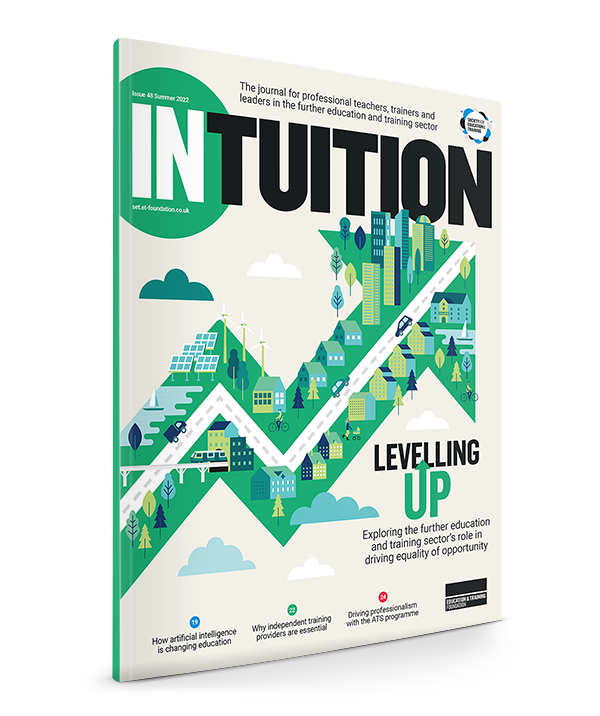inTuition taster: Exploring intersectionality
The term ‘intersectionality’ was first coined in 1989 by the American civil rights advocate Kimberlé Crenshaw, who looked at the double discrimination against black women in the labour market, which was both sexist and racist. It describes the study of overlapping or intersecting social identities and related systems of oppression, dominance or discrimination.
Intersectionality is how the interconnectedness of social categories such as race, gender, class, sexuality or disability shape our individual experiences and opportunities, creating multiple layers of exclusion.
This is why the Women’s Leadership Network has intersectional gender equality as its key principle. In our training, we acknowledge that leadership is not a value-free practice. We come to leadership, in whatever form that takes, as ourselves with our own unique lived experiences. This shapes what we believe, how we behave and what decisions we make.
If our lived experience is one of privilege, whether that is race, gender or being able-bodied, for example, it can lead to gaps in our understanding of what other people might be experiencing. Equally, our lived experiences can have an impact on what we might have to put up with, and therefore can influence how we perceive ourselves and present at work. Being aware of our multiple identities and lived experiences enables us to better include and support each other.
Our bias and lack of awareness can mean that we fail to see the challenges some learners or staff may face
The work we do on tackling sexual harms in Further Education (FE) and Skills acknowledges not just how gendered this issue is, but also how race, disability and sexual orientation increase vulnerability to sexual harassment and violence. Similarly, in the work we do on reproductive health, intersecting identities of race, culture and income will impact on the challenges it can present in everyday life and the support available.
Why does this matter for those who learn and work in the FE and Skills sector? Taking an intersectional approach helps us to think about how we can take a more active and inclusive approach to tackling inequality and exclusion.
Firstly, it is important to be more aware and mindful of how intersectionality creates multiple layers of disadvantage. Our bias and lack of awareness can mean that we fail to see the challenges some learners or staff may face just to turn up and be able to learn or work. Sometimes it’s about not making assumptions and judgements based on our own experiences but listening to other voices and asking the questions.
Secondly, we look at and record data about our learners such as socio-economic background, race, gender and disability and how that impacts on achievement in education and affects life chances. But we rarely look at how a combination of these factors might be creating multiple layers of disadvantage that need addressing in different ways.
When time and money is tight, drilling down into the data in this way means we can direct our efforts and resources where they are most needed. How often do we look at student experience data from an intersectional perspective, so that we can better understand how some learners may experience more harassment, bullying or challenges than others?
For example, if a learner has caring responsibilities, is that different for them depending on their intersecting identities, and do we always see the different challenges that may be faced, and then think about how we respond? This applies to how we record staff data as well.
Finally, looking at equity, diversity and inclusion through one aspect of identity means we may fail those who are most disadvantaged and marginalised, or be interpreted as favouring one group over another.
We risk creating ‘oppression hierarchies’, and that can be divisive rather than unifying. That feels important these days in our work with individual learners, staff and communities.
For more information on the Women’s Leadership Network, visit womensleadershipnetwork.org.uk
Kathryn James is an affinity group member of the Women’s Leadership Network, a collective of women committed to promoting intersectional gender equality within the FE and Skills and lifelong learning sector

Find out more about inTuition
inTuition is SET’s quarterly professional magazine supporting members' access to CPD resources and the latest sector and research news. It combines sector news with educational research and exciting practical developments and ideas in education and training.
Find out more
